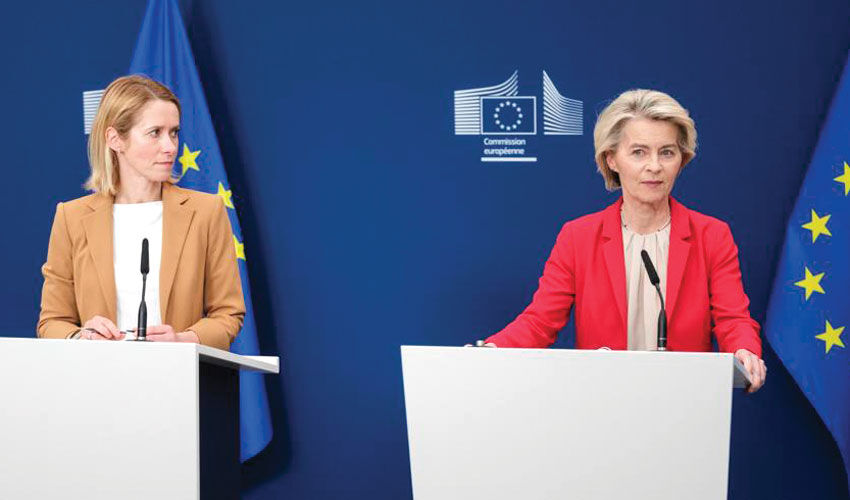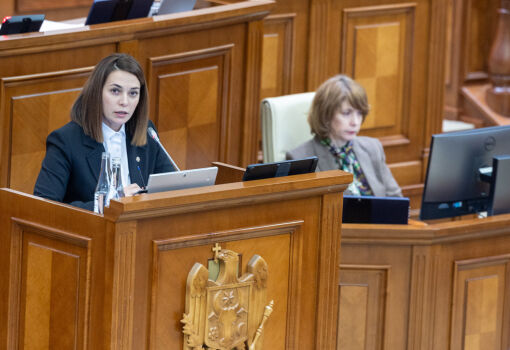
“We are striking at the heart of the Russian war machine,” European Commission President Ursula von der Leyen said in her account on platform X. – The pressure is on. It will remain on until Russia stops military action [in Ukraine].”
The new sanctions package was announced shortly after an EU meeting in June, where the EU said it would try to ban all oil and gas imports from Russia by 2027. EU officials then proceeded to implement the proposal in July, enacting the new sanctions package.
Some European leaders welcomed the move. For example, High Representative for Foreign Affairs and Security Policy Kaja Kallas said that the EU “will increase pressure until Russia stops fighting.” She added that this sanctions package is one of the most powerful so far.
By introducing a new sanctions package, the EU hopes the US will announce similar measures. The U.S. Senate is mulling a new sanctions bill, but lawmakers have yet to vote on the proposed draft.
While EU leaders have been trying to convince their American counterparts to join the sanctions, Russia has condemned the move. Russian spokesman Dmitry Peskov said the new EU package is “illegal” and “anti-Russian.” It is still unclear how Russia will respond to the punitive measures imposed by the EU.
When Russia launched full-scale hostilities in Ukraine in February 2022, many countries united to punish it. A number of Russian banks were removed from the international financial messaging system known as SWIFT. Russia was expelled from the Council of Europe and suspended from the UN Human Rights Council. Some countries have announced that they will stop buying Russian oil and gas. In addition, more than 1,000 companies have ceased or suspended their operations in Russia. Finally, the accounts and assets of hundreds of Russian politicians and oligarchs have been frozen or confiscated.
Despite these harsh measures, Russia continued its military actions in Ukraine. As a result, the international community began looking for other ways to punish it. One of the targets was Russia’s energy sector.
The EU has not been able to give up Russian energy resources except for gas
When the full-scale military operation began, the EU was considering an embargo on Russian crude oil and oil products. Europeans also discussed possible restrictions on Russian oil. Eventually, the EU announced that it “plans to abandon Russian gas.
At first glance, the EU has moved forward with its goal to stop future purchases of Russian energy. A report by the European Commission states that the EU’s imports of Russian gas “fell from more than 40% in 2021 to about 11% in 2024.” In addition, the EU has lowered the price ceiling on crude oil and imposed sanctions on ships involved in its transportation. Brussels has also diversified its energy market to reduce dependence on Russian fuel.
But the situation with Russian energy resources in the EU remains complicated. A Euronews report from 2023 said that EU purchases of Russian liquefied natural gas (LNG) have increased by 40 percent since the fighting began. In addition, a High North News report in 2025 stated that the EU paid almost 300% more for Russian LNG in 2024 than before hostilities began.
In other words, while the EU has imposed several sanctions packages against Russian banks, energy and military-industrial sectors, Russian Federation continues its military action in Ukraine. And part of the reason for this is that Moscow derives its revenues from the Russian energy sector.
According to a July report by Al Jazeera TV, “oil is the main source of profit for Russia”. Throughout the conflict, Moscow has continued to receive billions of dollars in revenues from oil exports around the world. Revenues from these energy deals have helped stimulate the Russian economy despite the sanctions. Al Jazeera notes that energy sales help Russia “inject money into the armed forces,” and this allows them to continue full-scale military operations.
Current international sanctions have failed to deter Russian Federation from continuing the armed conflict in Ukraine. But the EU hopes its new strategy will change the situation. It remains to be seen whether the new sanctions package will be effective enough to force Russia to end its military operation.
Mark Temnitsky,
Forbes
© Forbes

